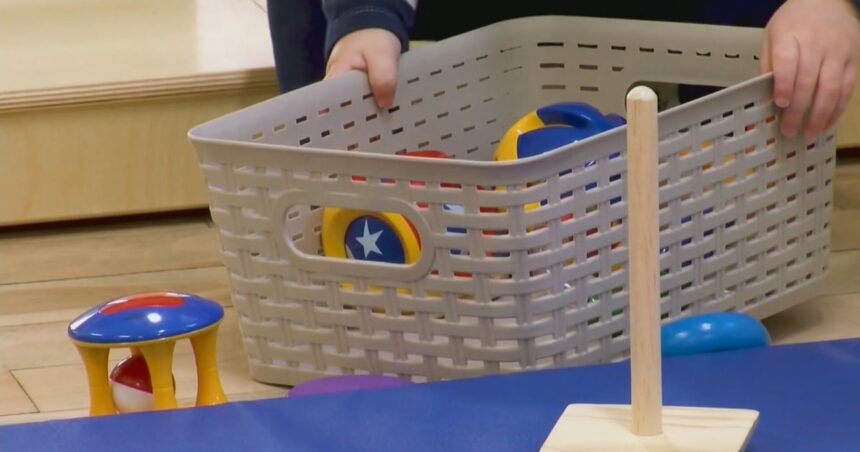Article – In a stunning policy reversal, Quebec’s Coalition Avenir Québec government has abandoned its controversial plan that would have denied subsidized daycare spots to children of temporary immigrants. The announcement came late yesterday after weeks of mounting pressure from advocacy groups, opposition parties, and everyday Quebecers.
“What we’re seeing is a government that failed to anticipate the human impact of what they were proposing,” says Marie-Claude Tremblay, director of Immigration Rights Quebec. “Families were terrified about what would happen to their children.”
The original policy, announced last month as part of Quebec’s overhaul of its immigration system, would have barred children of temporary foreign workers, international students, and asylum seekers from accessing the province’s coveted $8.85-per-day childcare network. Government officials initially framed the move as necessary to preserve spaces for “permanent residents and citizens” amid chronic shortages in the system.
Premier François Legault, speaking at a hastily arranged press conference in Quebec City, acknowledged the backlash but insisted the government’s intentions were misunderstood. “Our goal was never to harm children. We wanted to address the capacity issues in our daycare network, but we recognize this wasn’t the right approach,” he said, flanked by ministers looking visibly uncomfortable.
The province’s subsidized daycare program, established in 1997, has been a cornerstone of Quebec family policy for nearly three decades. Statistics Canada figures show the program has contributed to Quebec having among the highest maternal workforce participation rates in North America, with approximately 85% of mothers with children under six in the workforce.
For Fatima Abdi, a Somali asylum seeker and mother of two in Montreal’s Côte-des-Neiges neighborhood, the reversal brings immense relief. “I was losing sleep thinking about what would happen to my daughter,” she told me during a community meeting at a local church. “If she couldn’t go to daycare, I couldn’t work. If I couldn’t work, we couldn’t eat.”
Data from Quebec’s Ministry of Families shows approximately 7,300 children of temporary immigrants currently occupy spots in the province’s subsidized daycare network – roughly 3% of total spaces. Meanwhile, the waiting list for spots across the province stands at nearly 51,000 children.
Opposition parties were quick to claim victory while condemning the government for proposing the policy in the first place. Quebec Liberal Party leader Marc Tanguay called the episode “a disgraceful attempt to scapegoat immigrant families for the CAQ’s failure to create enough daycare spaces.”
This reversal comes amid increasingly fraught debates about immigration in Quebec. The province has sought greater control over immigration from the federal government, arguing its unique linguistic and cultural situation requires specialized approaches.
Dr. Richard Clément, professor of immigration policy at Université Laval, sees the failed policy as part of a larger pattern. “The CAQ government is trying to navigate complex demographic challenges – an aging population that needs economic growth through immigration, while also responding to constituents concerned about cultural integration. But using children as political chess pieces was clearly a step too far.”
Behind the scenes, sources within the government told me several ministers threatened to resign if the policy wasn’t abandoned. “There was serious internal conflict,” said one senior official who requested anonymity. “Some saw this as betraying Quebec’s values of compassion and fairness.”
The daycare policy isn’t the first immigration-related reversal for the Legault government. Last year, it backed away from restrictions on international students attending English-language CEGEPs after similar public outcry.
For parents like Maryam Tehrani, an Iranian doctoral student at McGill University, the policy shift is welcome but has left lasting anxiety. “I still worry they will try something else. My daughter’s future shouldn’t depend on political winds.”
Business leaders had also criticized the original policy. Chamber of Commerce of Metropolitan Montreal president Michel Leblanc pointed out that many temporary workers fill crucial labor shortages. “When you make it impossible for their children to access daycare, you’re essentially telling these workers they’re not welcome, regardless of how much we need their skills.”
The childcare system itself faces significant challenges beyond immigration politics. Despite the CAQ’s promise to create 37,000 new subsidized daycare spaces by 2025, development has lagged. The childcare workers’ union estimates Quebec needs at least 65,000 additional spaces to meet current demand.
Education expert Sophie Tremblay-Beaumont from Université du Québec à Montréal emphasizes the broader implications. “Access to quality early childhood education benefits all of society. It’s one of our most effective social programs for reducing inequality.”
As Quebec approaches provincial elections next year, the daycare controversy may signal shifting political calculations around immigration rhetoric. Recent polling by Léger shows 64% of Quebecers opposed the proposed daycare restrictions, including a majority of CAQ supporters.
For now, families like the Abdis can breathe easier. “My daughter loves her daycare,” Fatima tells me, smiling as she shows photos on her phone. “The teachers are helping her learn French. This is how integration actually happens – not through exclusion.”






